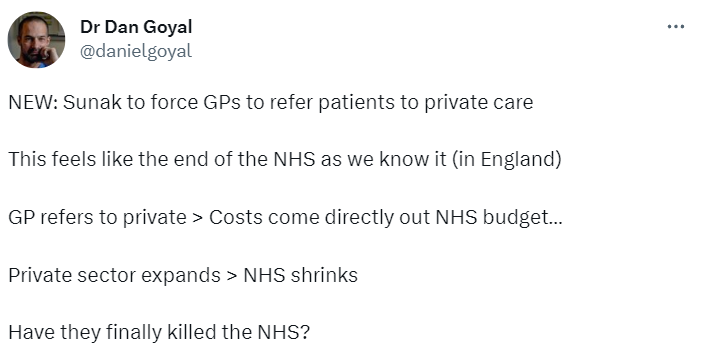Pavilion Publishing and Media Ltd
Blue Sky Offices Shoreham, 25 Cecil Pashley Way, Shoreham-by-Sea, West Sussex, BN43 5FF, UNITED KINGDOM
The Department of Health and Social Care is changing the way patients book NHS appointments, in a bid to cut waiting lists and make it easier and quicker for patients to access care.
The new plan enables patients who have been referred to specialists to choose from a list of five clinics via the NHS website or the app, rather than only being offered care at their nearest clinic.
Waiting times, distance to travel, quality of care and available appointment times will all be shown within the app, alongside the ability to cancel or reschedule appointments.
The Prime Minister, Rishi Sunak, said the plans will empower patients to have a real choice about where they receive care.
“Our aim is to create an NHS built around patients, where everyone has more control over the care they receive, wherever they live or whatever their health needs are,” he said.
Plans could exacerbate existing health inequalities
However, Dr Kieran Sharrock, acting chair of the BMA England GP committee, said: “This is not an answer to the huge waiting lists we face, and the announcement comes with little acknowledgement of its impact on primary care.”
He said that unless extra resources are provided, the plans will reduce GPs’ capacity to deal with patients’ clinical problems. Heavy reliance on the internet and smartphone apps could also digitally exclude marginalised groups, he said.
Rory Deighton, director of the acute network at the NHS Confederation, has expressed similar concerns, and said that patients with “better knowledge, resources, or support systems may be more capable of exercising choice”, which could exacerbate existing health inequalities.
Dr Sharrock also highlights that most patients want to be seen “in good time” and “close to home”, and may not be willing to travel long distances just to receive timely care.
“It is long waiting lists, due to the long-term undervaluing of NHS staff and poor workforce planning, that are preventing this from happening, not a lack of patient choice,” he said.
Doctors in distant NHS hospitals will not be able to access crucial results and records
Deighton also expressed concern that patients may choose different providers for various aspects of their care, leading to a lack of overall care coordination and continuity. “This can affect communication, information sharing, and the overall effectiveness,” he said.
Dr Gordon Caldwell, a consultant physician at Worthing Hospital, explained how this can affect patient care.
“When choose and book was introduced I got patients from Brighton choosing Worthing, but I was unable to see results for tests done in Brighton, delaying care sometimes by weeks. There is no national access to results and crucial clinical information in [NHS England].
“This was for simple conditions like overactive thyroid. If I could not see the test results I could not make safe decisions about change in dose of medication. The Doctor treating the patient needs to be able to access all the relevant clinical information,” he tweeted.
Could this new initiative lead to an expansion of private services?
NHS medical consultant Dr Daniel Goyal, has also expressed concern that this new initiative could significantly deplete NHS resources.
Under the plans, patients may be offered treatment from private healthcare providers, funded by the NHS. Low-income patients may also receive help with travel costs under an existing scheme.
Dr Goyal says this could lead to an expansion of private services, and a shrinking of NHS services.

The government says that giving patients choice over which hospital they are treated at can cut up to three months off their waiting time, but only time will tell whether this new initiative will have a positive impact on the gargantuan waiting list for elective care.
Deighton said: “Choice works well in a system that is well funded, with sufficient workforce and a well-funded relationship with the independent sector.
“In the current environment, with no new resources, it will be interesting to see how much capacity this new policy actually creates, and how many people are helped off the elective waiting lists.”


